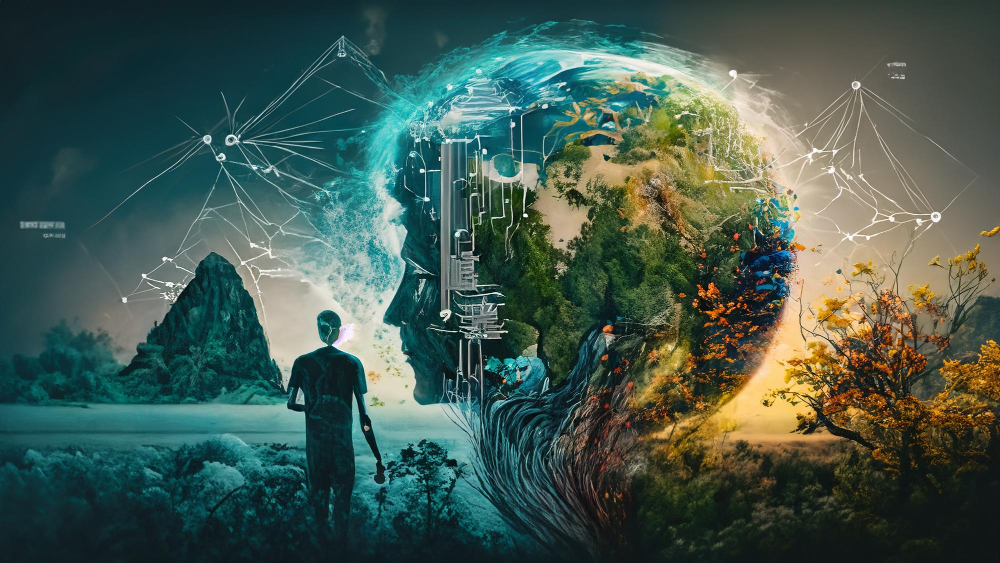- Blog
- October 18, 2024
Real-world Applications of Generative AI in climate science

- Blog
- October 18, 2024
Real-world Applications of Generative AI in climate science
Generative AI is revolutionizing climate science by providing innovative solutions to tackle environmental challenges, making it a vital tool for climate modeling, forecasting, and data analysis. It is transforming the field by simulating new scenarios and improving predictions. From enhancing climate models to optimizing renewable energy solutions, AI tools are offering deeper insights and practical solutions to address environmental challenges. In this blog, we’ll explore how generative AI in climate science is reshaping the future and its impact across industries.
Traditional climate models in climate science, like General Circulation Models (GCMs), simulate the Earth’s atmosphere, oceans, and land to predict future climate conditions. They use mathematical equations to represent physical processes such as temperature, wind, and precipitation, helping scientists assess climate change impacts and mitigation strategies.
These traditional climate models often struggle with the complexity of climate data. Generative AI in climate science addresses this by simulating new scenarios and predicting future trends more accurately. AI-powered tools process vast data sources such as satellite imagery, climate sensors, and historical data to create comprehensive models that simulate climate events. From tracking rising sea levels to monitoring pollutants, generative AI in climate science enables deeper insights into climate change. Additionally, AI enhances predictive modeling by incorporating synthetic data, leading to more precise models that inform critical environmental decisions.
Let’s see how Generative AI is deployed in real-world applications for climate science monitoring.
- 1. Climate Modeling and Simulation
Traditional climate models are computationally expensive and complex. However, generative models, such as Generative Adversarial Networks (GANs), can generate high-resolution climate simulations in less time and with fewer computational resources. These simulations are critical for predicting extreme weather events like hurricanes and floods, helping policymakers and communities prepare for potential disasters. - 2. Downscaling Climate Data
Downscaling refers to refining global climate models for local-level predictions. Generative AI in climate science enhances this by generating more detailed and specific climate data, making predictions more relevant for regional planning and policy development. This is vital for urban planning, agriculture, and water resource management. - 3. Analyzing Satellite Imagery
Generative AI in climate science processes vast satellite imagery to track environmental changes such as deforestation, ice melting, or coral reef degradation. This real-time analysis offers insights into how ecosystems evolve under climate stress, helping conservationists and governments take timely action to prevent further degradation. - 4. Carbon Capture Optimization
Generative AI in climate science aids in optimizing carbon capture technologies by simulating various chemical processes. This results in breakthroughs in carbon capture methods, making it more feasible to reduce greenhouse gases. - 5. Enhancing Renewable Energy Solutions
Generative AI in climate science optimizes renewable energy systems like wind and solar power by generating simulations of energy production under varying environmental conditions. This helps improve efficiency in renewable energy deployment and infrastructure.
As the need for Generative AI expands, industries are realizing its importance. Some of the industries have already started deploying it.
- Energy Sector: Renewable energy companies use generative AI in climate science to optimize energy production, forecast demand, and reduce carbon emissions.
- Agriculture and Food Production: Generative AI in climate science helps farmers predict crop yields, manage resources, and prepare for extreme weather events, leading to better sustainability.
- Insurance and Risk Management: The insurance industry uses generative AI in climate science to simulate natural disasters, improving risk assessments and pricing policies.
- Transportation and Logistics: Companies use generative AI in climate science to optimize routes, reduce fuel consumption, and minimize carbon emissions.
- Water and Waste Management: AI-powered tools help monitor resource usage and predict shortages, contributing to more sustainable water and waste management practices.
As climate challenges continue , the demand for advanced tools like generative AI in climate science becomes increasingly important. MSRcosmos is at the forefront of developing innovative AI solutions to help organizations make data-driven, sustainable decisions. From optimizing energy usage to conducting environmental assessments, our expertise delivers actionable insights that drive long-term sustainability. Reach out to MSRcosmos today to explore how our cutting-edge AI solutions can help your organization achieve its environmental goals and access tailored services that drive sustainable success.




